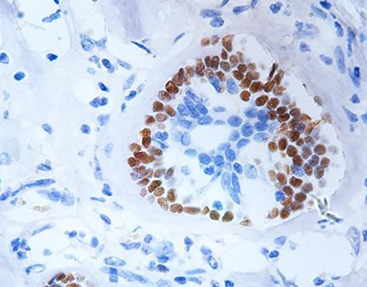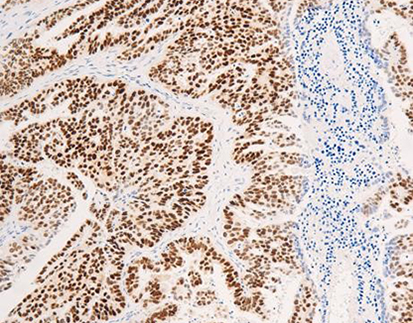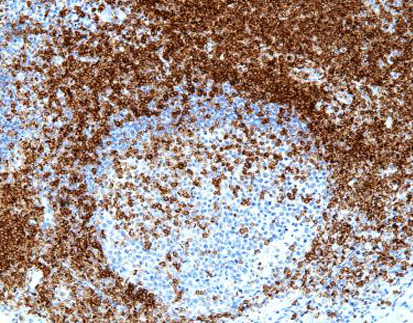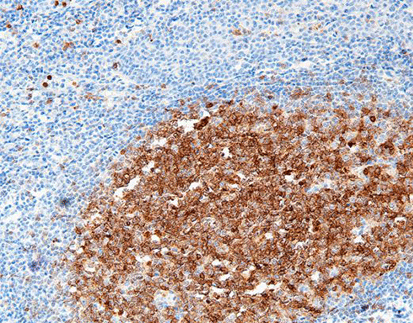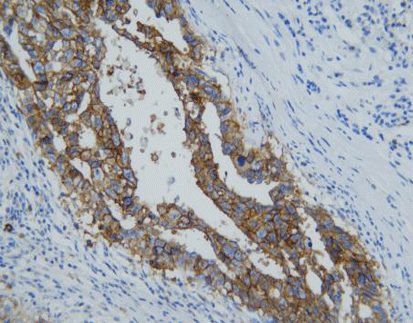 PRODUCT CATEGORY
PRODUCT CATEGORY
CONTACT US
Phone
Email
Address
Building 109, 1 Cuizhu Street, Zhengzhou, Henan, China
P63,anti-mouse,monoclonal,C2C10
The P63 gene is a member of the P53 gene family and encodes at least six main same species with transactivation, death-induced activity (TAp63) and dominant inactivation activity (deltaNp63).The literature reports that the P63 protein is expressed in a variety of normal tissues in humans and mice, including proliferating epithelial cells, cervix, urothelium and prostate. P63 expression is also reported in most low-differentiated squamous cell carcinomas. P63 protein is needed for prostate development and p63 protein in mouse limb and epidermis. In children with congenital defects refers to (toe) and external embryo layer dysplasia as well as lip or cleft palate syndrome, the P63 gene mutation occurs. In contrast to the P53 gene, the P63 gene is a rare mutation in human cancer.
Photo Staining Tissue
- As Figure shows:
Breast cancer tissue stained with P63
Specification
|
CODE |
WORKING SOLUTION |
|||
|
CPM-0160 |
SPECIFICATION |
1ml |
3ml |
6ml |
More Info
Clone: C2C10
Source:Mouse
Localization:Nucleus
Pretreatment: Thermal remediation
Applicable tissue :Paraffin section /Frozen section



